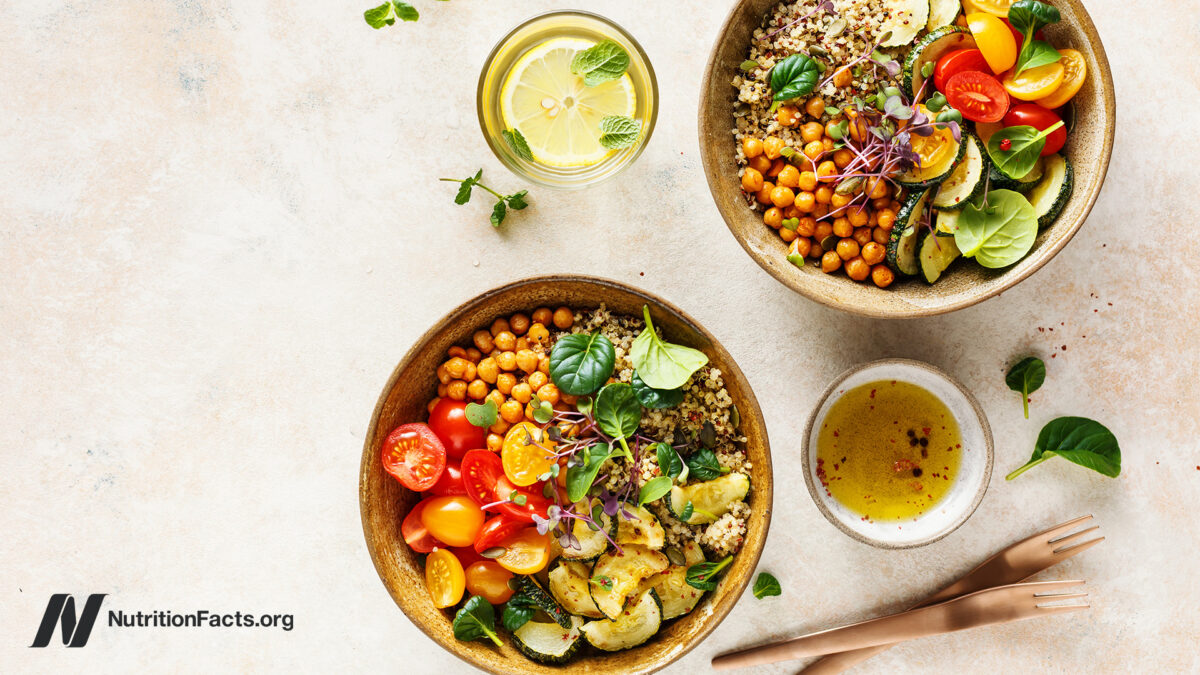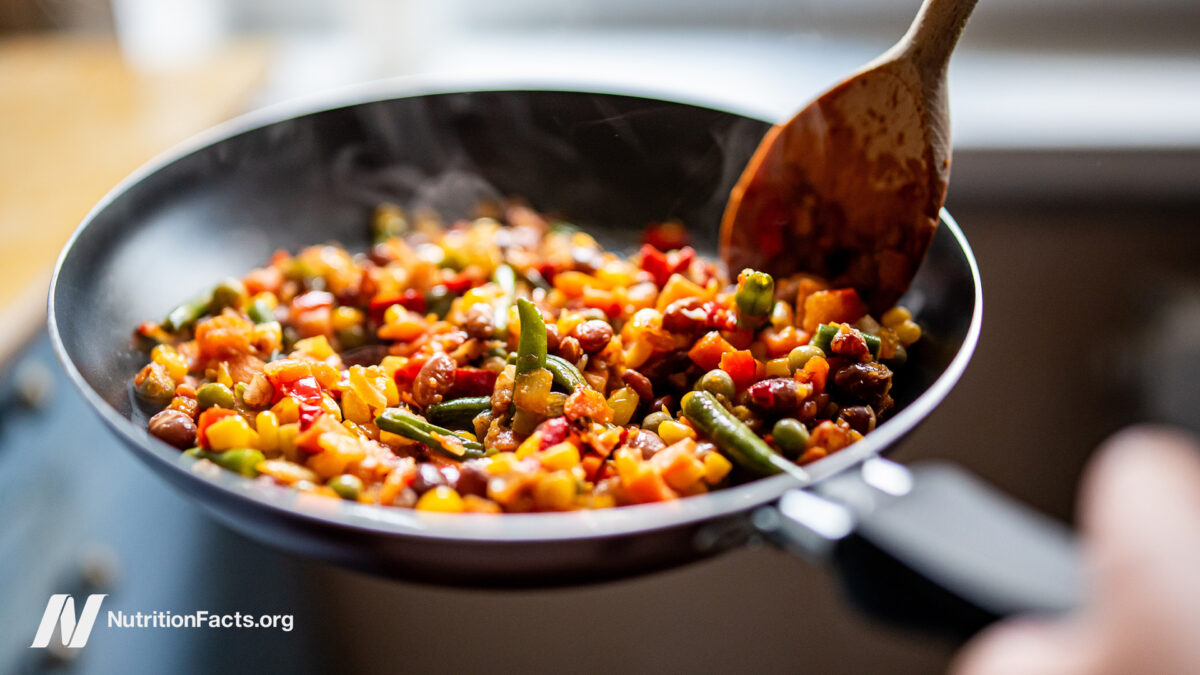 (1).jpg)
Do Fruits and Vegetables Boost Our Mood?
A randomized controlled trial investigates diet and psychological well-being.
“Increased fruit and vegetable consumption was predictive of increased happiness, life satisfaction, and well-being. They were up to 0.24 life-satisfaction points (for an increase of 8 portions a day), which is equal in size to the psychological gain of going from unemployment to employment.” (My Daily Dozen recommendation is for at least nine servings of fruits and veggies a day.)
That study was done in Australia. It was repeated in the United Kingdom, and researchers found the same results, though Brits may need to bump up their daily minimum consumption of fruits and vegetables to more like 10 or 11 servings a day.
As researchers asked in the title of their paper, “Does eating fruit and vegetables also reduce the longitudinal risk of depression and anxiety?” Improved well-being is nice, but “governments and medical authorities are often interested in the determinants of major mental ill-health conditions, such as depression and high levels of anxiety, and not solely in a more typical citizen’s level of well-being”—for instance, not just life satisfaction. And, indeed, using the same dataset but instead looking for mental illness, researchers found that “eating fruit and vegetables may help to protect against future risk of clinical depression and anxiety,” as well.
A systematic review and meta-analysis of dozens of studies found “an inverse linear association between fruit or vegetable intake and risk of depression, such that every 100-gram increased intake of fruit was associated with a 3% reduced risk of depression,” about half an apple. Yet, “less than 10% of most Western populations consume adequate levels of whole fruits and dietary fiber, with typical intake being about half of the recommended levels.” Maybe the problem is we’re just telling people about the long-term benefits of fruit intake for chronic disease prevention, rather than the near-immediate improvements in well-being. Maybe we should be advertising the “happiness’ gains.” Perhaps, but we first need to make sure they’re real.
We’ve been talking about associations. Yes, “a healthy diet may reduce the risk of future depression or anxiety, but being diagnosed with depression or anxiety today could also lead to lower fruit and vegetable intake in the future.” Now, in these studies, we can indeed show that the increase in fruit and vegetable consumption came first, and not the other way around, but as the great enlightenment philosopher David Hume pointed out, just because the rooster crows before the dawn doesn’t mean the rooster caused the sun to rise.
To prove cause and effect, we need to put it to the test with an interventional study. Unfortunately, to date, many studies have compared fruit to chocolate and chips, for instance. Indeed, study participants randomized to eat fruit showed significant improvements in anxiety, depression, fatigue, and emotional distress, which is amazing, but that was compared to chocolate and potato chips, as you can see below and at 4:26 in my video. Apples, clementines, and bananas making people feel better than assorted potato chips and chunky chocolate wafers is not exactly a revelation.


.jpg)
